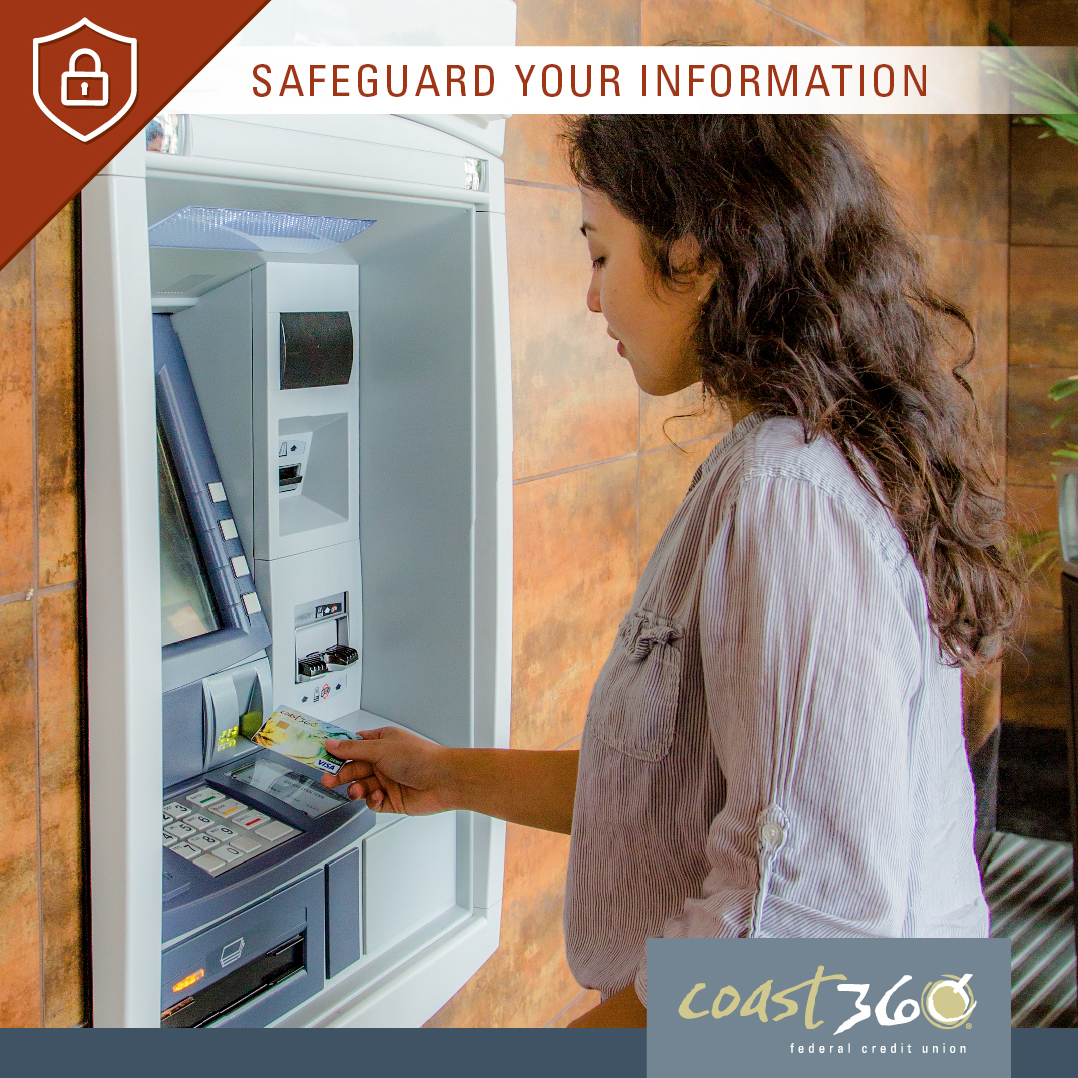Member Security Tips

Safeguarding Your Information
Every day, unscrupulous individuals are busy developing new scams targeting the unsuspecting public and capitalizing on our need for increased speed and convenience. Be proactive in protecting your personal information with the following security tips.
Beware of rising ATM Fraud
While you should still practice the age old ATM precautions of minding your surroundings, using ATMs in a well lit area, blocking your PIN with your hand, and holding on to your receipts, we now have to be wary of ATM skimming, one of the most common financial scams today. Skimming occurs when an ATM or card processor is compromised by a skimming device, a fraudulent card reader disguised to look like a real part of the machine. When criminals install or affix these devices to a card terminal, they can save people’s card numbers and even PINs. Protect yourself by taking a good look at an ATM before inserting your card. If you notice a loose fitting part, messy/misplaced wires, or anything else that looks out of place—don’t use that machine and alert your financial institution immediately. Also monitor your accounts frequently to ensure that no unauthorized transactions have occurred. Watch this video to learn more about card skimming.
Monitor your credit report – it’s free!
Consumers are entitled to one free credit report from each of the three reporting bureaus annually. Click here or watch this video to learn more.
Phishing scams don’t always look fishy
According to the Federal Trades Commission, the nation’s consumer protection agency, “phishing is when a scammer uses fraudulent emails or texts, or copycat websites to get you to share valuable personal information—such as account numbers, Social Security numbers, or your login IDs and passwords.” Recent scams can also get around Caller ID and fake their contact numbers. Phishing attacks can be very tricky and come in many different forms, but all of them aim to use your information to steal your money, identity, or both. For more information on phishing attacks, click here or watch this video.
Keep yourself safe in cyberspace
In today’s high tech world, we are able to do things more quickly and conveniently. Whether it is sending a letter via email, paying bills, or even shopping online, the increase in speed and convenience via electronic activity comes with increased risks. An important part of online safety is knowledge, so click here to learn all about being safe in cyberspace.
Don’t be intimidated by pressure, threats, or confusion tactics of scammers
Scammers often use scare tactics and coerce victims into acting quickly, before they can look deeper into their lies. Never respond to threats and or demands for payment or your personal information. Learn about how legitimate businesses or government agencies might contact you by visiting their website or calling a number that you know to be genuine. To find out how Coast360 contacts members, click here. To read more about the types of scams being reported, click here.
The Grandparent Scam is one of the most common examples of fraud experienced today. Watch this video to learn about this widespread scam.
Help save someone else from fraud—report it!
Reading this website already puts you one step ahead of scammers, but what about your family and friends who might be their next targets? Even if you didn’t take the bait or fall victim to a scam, help stop fraud by filing a report here.
Other Helpful Resources
What to expect from
Coast360 Federal Credit Union
At Coast360 Federal Credit Union, the security of our member information is a priority. To help keep your information safe from phishing attacks, please be aware that:
- Coast360 Federal Credit Union will NEVER call, email or otherwise contact you and ask for your user name, password or other online banking credentials.
- Coast360 Federal Credit Union will NEVER contact you and ask for your credit or debit card number, PIN or 4-digit security code. Please see below for more information about how our card providers, Fiserv and Jack Henry and Associates (JHA), approach customer service calls.
- Our card provider, Fiserv and JHA, will identify themselves as Coast360 Fraud Prevention Department. They will NEVER ask for your card number, expiration date or CVC (security) code.
- They will:
- Verify your street address.
- Verify the last four digits of your Social Security Number.
- They may:
- Ask for the last four digits of your card number.
- Ask to verify the amount of your last transaction or payment.
- They will:
- If you are uncomfortable with the call, please hang up and call them back on the 800 number of the back of your card or call our Contact Center at 671-477-8736 or toll-free 1-866-217-4858 from the U.S. mainland.

